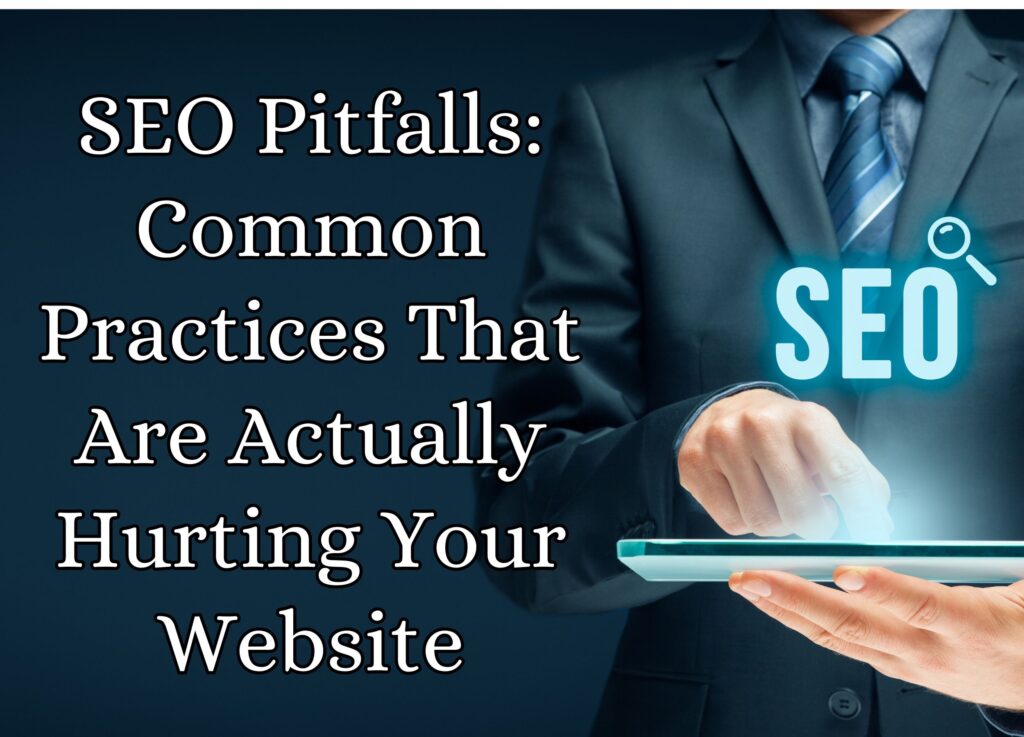The Keyword Stuffing Trap: Less Is More
One of the oldest tricks in the SEO book is keyword stuffing. Back in the day, loading up your content with keywords might have gotten you some extra attention from search engines. But times have changed. Today, search engines like Google are much smarter and can spot keyword stuffing a mile away. Instead of boosting your SEO, this outdated tactic will likely hurt your rankings and could even get you penalized.
Duplicate Content: A No-Go for SEO
It might seem like a time-saver to reuse content across multiple pages on your website, but duplicate content can seriously harm your SEO efforts. Search engines are in the business of providing diverse and relevant results. When they detect duplicate content, they’re likely to downrank your pages, making it harder for potential customers to find you.

Ignoring Mobile Users: A Recipe for SEO Disaster
With more and more people using smartphones to browse the web, having a mobile-friendly website is no longer optional; it’s a necessity. Google has even switched to mobile-first indexing, meaning it primarily uses the mobile version of a site for ranking and indexing. If your site isn’t optimized for mobile, you’re missing out on a huge chunk of potential traffic and hurting your SEO.
Slow Page Load Times: The Silent SEO Killer
In today’s fast-paced digital world, nobody wants to wait around for a slow website to load. Not only does it create a poor user experience, but it also negatively impacts your SEO. Search engines take page load times into account when ranking websites, so if your site is slow, it’s likely to be pushed down in the search results.
Bad Backlinks: Quality Over Quantity
Backlinks are a crucial part of any SEO strategy, but not all backlinks are created equal. Links from spammy or irrelevant websites can do more harm than good. Google’s algorithms are sophisticated enough to evaluate the quality of your backlinks, and poor-quality links can result in a lower ranking or even a penalty.
Overlooking Meta Descriptions: Missing the SEO Basics
Meta descriptions may not directly impact your search engine rankings, but they do influence click-through rates. A well-crafted meta description can entice users to click on your link instead of a competitor’s. Ignoring this basic element of SEO is a missed opportunity to draw more organic traffic to your site.
Poor Internal Linking: A Lost Opportunity
Internal linking is often overlooked in SEO strategies, but it’s essential for guiding visitors through your website and improving page authority. However, excessive or irrelevant internal links can confuse both users and search engines, hurting your SEO efforts.
Ignoring Local SEO: Missing Out on Nearby Customers
Many businesses make the mistake of focusing solely on general SEO while ignoring local SEO. If you have a brick-and-mortar location or serve a specific geographic area, local SEO is crucial. Neglecting to optimize for local search terms and failing to claim your Google My Business listing can result in lower rankings in local search results.
SEO is a complex and ever-changing field, and it’s easy to fall into traps that hurt rather than help. By being aware of these common pitfalls, you can make more informed decisions and build an SEO strategy that boosts your rankings, attracts more visitors, and drives more conversions.
As an Amazon Associate we earn from qualifying purchases through some links in our articles.




